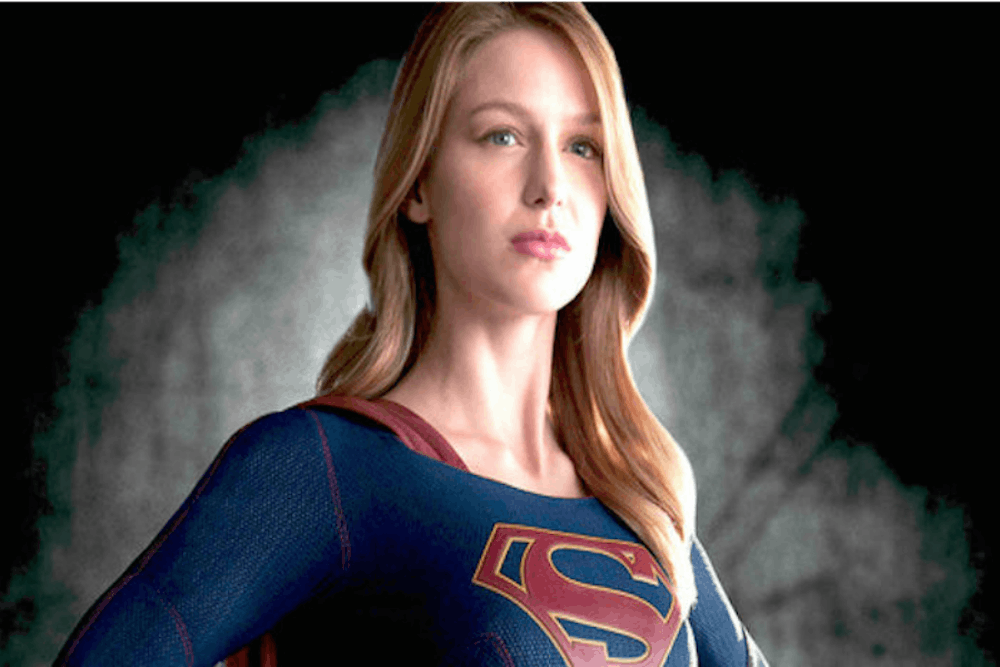By Devon Shuman, Senior Staff Writer
CBS' new primetime series, "Supergirl," has all the elements that make the superhero genre so popular - and that's exactly why it's not any good.
When it comes down to it, why is the superhero genre so prevalent on TV and on the big screen today? What makes "Iron Man," "Captain America" and "The Avengers" so popular?
They are marked by gloriously unrealistic CGI effects, predictable storylines that always end in happy endings, flat characters and dialogue that is cheesier than a Green Bay dairy farm. They aren't artistic explorations or in-depth character studies, they're moneymaking machines.
"Supergirl" follows Kara Zor-El (Melissa Benoist) who is the cousin of Kal-El, otherwise known as Superman.
Like her cousin, Kara was sent to Earth right before the destruction of the planet Krypton, but her ship fell off course and she took longer to arrive. She was raised by the Danvers family and decided to ignore her superhuman powers and enter a normal life working for a media conglomerate run by the rich and snobby Cat Grant.
However, at the time of the pilot, Kara starts to want more, to use her powers for good like her now well-known cousin does.
The idea of "Supergirl" was promising.
The superhero genre is undeniably a patriarchal one. It rarely includes female heroes and when it does (e.g. the Invisible Woman from "Fantastic Four," Black Widow from "The Avengers"), they tend to take a back seat to their male counterparts. If the writers and producers at CBS were willing to do away with this system and create a strong, female superhero as the focus and protagonist of their show, maybe they wouldn't be afraid to ignore the traditional basic structure of the genre and develop a unique and intriguing series.
Unfortunately, "Supergirl" is just another bland addition to the pack.
Almost every character is flat, clichéd and overacted. The worst of the bunch is easily Cat Grant (Calista Flockhart), the egotistic head of the company Kara works for. Flockhart tries way too hard to model her character after Meryl Streep in "The Devil Wears Prada." She hits us with a never-ending barrage of eye rolls and piercing glares, and her dialogue is filled with over-the-top exclamations of her narcissism - "I'm a girl and your boss and powerful and rich and hot and smart."
As for Kara herself, any hope of her truly being a strong female lead was quickly diminished. The writers could have taken the time to develop a new and interesting character, someone with a rich personality and intricate, emotional flaws. Instead, they just applied to her the same quirky and slightly reserved persona made popular by Zooey Deschanel in, "New Girl." Melissa Benoist plays it well, but it's nothing we haven't seen before.
Enjoy what you're reading?
Signup for our newsletter
Characters aside, the storyline is bland and predictable.
The deciding point came when Kara first decides to exhibit her powers, using them to save a crashing plane with her foster sister inside. The writers had the opportunity to have her fail and have her sister perish in the crash, thus setting the stage for a deep, psychologically driven storyline in which Kara must overcome the emotional turmoil from letting her sister die in order to confidently use her powers again.
Unfortunately, they gave the scene a happy ending, allowing the series to resign itself to the typical superhero genre formula.
The show does have its bright spots. Mehcad Brooks is brilliant as Jimmy Olsen, Superman's photographer who signs on to work with Grant. Juxtaposed against the over-exaggerated emotions of the rest of the actors, Brooks' calm and subtle style is paradoxically dazzling.
Additionally, cheesy dialogue is one of the only tropes of the genre that can actually be pleasurable, and "Supergirl" does not disappoint. When an alien from Krypton who had been sentenced to prison by Kara's mom begins to fight her, he boldly announces, "Well, I can't kill your mother. I guess you'll have to do."
All in all, however, "Supergirl" is nothing but another addition to the superhero genre, a genre that, despite being uniform and predictable, continues to spurt out more movies and shows.
The only person to challenge the monotony of it was Christopher Nolan. With his "Dark Knight" trilogy, Nolan traded in special effects and formulaic plots for intriguing characters and an exploration of psychological themes. Despite the overwhelming success of his work, the blockbuster production companies have yet to catch on.
If they want to be fresh and original, they need to start seeking out new approaches to these stories, and, unfortunately, "Supergirl" is not a step in the right direction.




